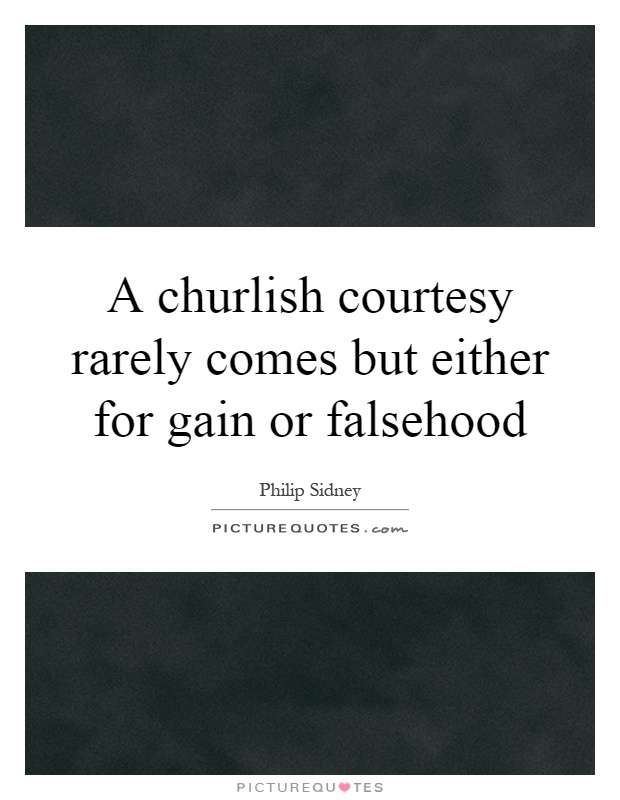A churlish courtesy rarely comes but either for gain or falsehood

A churlish courtesy rarely comes but either for gain or falsehood
Sir Philip Sidney was a prominent figure in the Elizabethan era, known for his chivalrous demeanor and noble character. He was a poet, courtier, and soldier, whose works reflected his values of honor, integrity, and sincerity. In his famous work, "Astrophil and Stella," Sidney explores the themes of love, friendship, and the complexities of human relationships.The quote, "A churlish courtesy rarely comes but either for gain or falsehood," can be seen as a reflection of Sidney's belief in the importance of genuine and sincere interactions. In the courtly society of his time, where appearances and social status were highly valued, Sidney emphasized the importance of honesty and authenticity in one's dealings with others.
Sidney believed that true courtesy should come from the heart, not from a desire for personal gain or to deceive others. He valued sincerity and integrity above all else, and believed that true nobility lay in one's character and actions, rather than in outward displays of wealth or status.
In "Astrophil and Stella," Sidney explores the complexities of love and friendship, and the ways in which human relationships can be influenced by selfish motives and deceit. The characters in the poem struggle with their own desires and insecurities, and often act in ways that are not truly genuine or sincere.
Sidney's own life was marked by his commitment to honor and integrity, even in the face of adversity. He was known for his courage and loyalty, and his willingness to stand up for his beliefs, even at great personal cost.












 Friendship Quotes
Friendship Quotes Love Quotes
Love Quotes Life Quotes
Life Quotes Funny Quotes
Funny Quotes Motivational Quotes
Motivational Quotes Inspirational Quotes
Inspirational Quotes